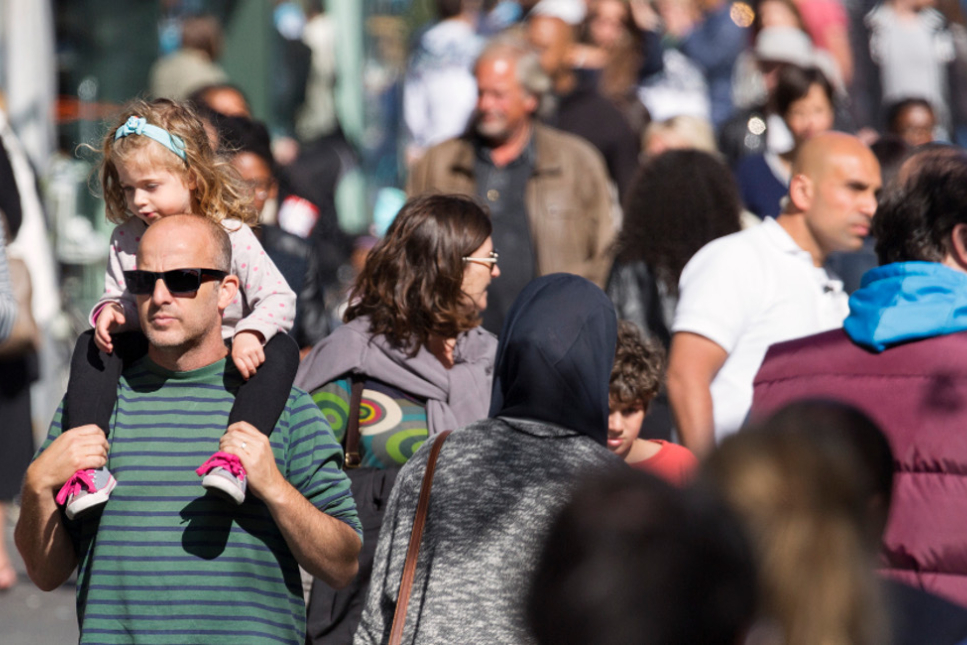Enabling participation
A vision on public participation in decision-making about long term radioactive waste management
Report
Downloads

In connection with its development of the Dutch national programme, the Authority for Nuclear Safety and Radiological Protection (in Dutch, Autoriteit Nucleaire Veiligheid en Stralingsbescherming: ANVS) asked the Rathenau Instituut to formulate a vision on public participation in decision-making about the long-term radioactive waste management, to serve as a supporting study for the national programme.
In connection with its development of the Dutch national programme, the Authority for Nuclear Safety and Radiological Protection (in Dutch, Autoriteit Nucleaire Veiligheid en Stralingsbescherming: ANVS) asked the Rathenau Instituut to formulate a vision on public participation in decision-making about the long-term radioactive waste management, to serve as a supporting study for the national programme.
On the basis of Directive 2011/70/Euratom, public participation was initially interpreted as the involvement of ordinary citizens. However, the ambiguous nature of the problem means that it is not sufficient to involve only the general public in decision-making about the long-term radioactive waste management. Good public participation also involves lower tiers of government, stakeholders and the scientific community. Successful public participation in decision-making about long-term radioactive waste management additionally depends on organizing a reliable and honest process, which does not exclude any potential outcome. In the establishment of such a process, it is necessary to begin by endeavouring to build up trust and willingness to participate. With a view to bolstering trust and willingness to participate, collective consideration of how public participation can best be organized should begin immediately. The ANVS should also establish a cycle of continuous reflection on the subject matter and procedural design of public participation, as well as on the ethical aspects of the management problem in the long term.
We have identified three component issues of long-term radioactive waste management problem: (multi)national management, management technologies and site selection. For each component issue, we propose creating a participation cluster. The various clusters may differ from each other in terms of the parties involved, the degree of participation and duration of the process. Reflection on the participation clusters is essential, not only with a view to bolstering trust, but also as a basis for adjustment of the clusters where necessary. The reflection should itself be organized on a participatory basis. We accordingly propose that reflection should be a participation cluster in its own right. Because the radioactive waste problem and the nuclear energy debate are inseparably linked, we recommend being open to discussion.
It is not possible to define a starting point or end point for public participation, because the time line is uncertain. The time line is susceptible to influence in the form of technological developments, incidents with radioactive waste or nuclear power plants, geopolitical tensions or administrative changes at the national or European level.
Nevertheless, a number of key junctures can be identified. First, we regard 2033 as an important year for public participation in decision-making about long-term radioactive waste management. That is when the nuclear power plant at Borssele will be taken out of service. The plant's scheduled closure will make the radioactive waste debate more topical. Willingness to participate is consequently likely to be high at that point in time. The year 2025 will also be a key juncture. That is the final opportunity prior to closure of the Borssele plant for the ANVS to report the findings of its evaluation of the Dutch national programme to the European Commission. In the vision presented here, 2025 is therefore a key juncture, which is also highlighted in our recommendations.
Until 2025, the prospects for good public participation involving ordinary citizens do not appear strong. We recommend that, in the period up to 2025, the ANVS focuses mainly on preparing for public participation. To that end and with participation of various stakeholders (the scientific community, lower tiers of government, businesses and NGOs) the ANVS is investigating views on this vision of public participation and the associated agenda (component issues). That exercise is expected to contribute to restoration of trust in government and thus to willingness to participate in decision-making about the long-term radioactive waste management. It may be advantageous to align such preparatory activities with the cycle for reporting on the progress of the Dutch national programme to the European Commission.
Preferred citation:
Vries, A. de, A. van Waes, R. van Est, B. van der Meulen & F. Brom, Enabling participation - A vision on public participation in decision-making about long term radioactive waste management. Den Haag, Rathenau Instituut 2015